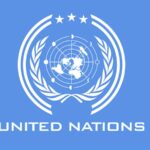The United Nations (UN), established in 1945, has persistently proclaimed its mission to foster peace, security and international cooperation. Nevertheless, a careful exploration of its structural foundation, particularly the configuration of its Security Council, illuminates an unsettling narrative of inequality. This imbalance is glaringly evident when we scrutinise the representation of Africa, a continent consisting of 55 sovereign nations. Despite playing a substantial role in global peacekeeping endeavours, Africa remains starkly under-represented in the UN’s topmost decision-making tiers.
Africa, tragically, is the only continent without a permanent seat or veto power in the Security Council, revealing an institutional bias inherent in the UN’s present structure. The Security Council, widely considered the most influential body within the UN, is composed of five permanent members with veto power: the United States, the United Kingdom, France, Russia and China. This group essentially governs and moulds global policies, yet it glaringly lacks representation from any African nation. This omission is not only disconcerting but also constitutes a deep-seated inequity for many.
The argument for Africa’s representation is further bolstered by its substantial participation in global peacekeeping missions. African countries consistently rank among the largest contributors of troops to UN peacekeeping operations. Despite this pivotal involvement, these nations are denied a voice in the permanent decisions made by the Security Council. This disconnect between contribution and influence manifests a severe power imbalance within the UN structure.
Africa, a continent rich in cultural diversity, natural resources and growing economic potential, warrants recognition as an equal player on the global stage. The current Security Council structure not only belittles Africa’s significant contributions but also hampers the continent’s potential to influence global policies that directly affect it. This arrangement simultaneously undermines the UN’s own principle of equal representation. Reforming the Security Council to include African representation is not merely fair but essential to transforming the global body into a just organisation that serves both the weak and powerful nations equally.
Moreover, this power imbalance often results in African nations merely being the subjects of decisions, rather than active contributors. The African continent frequently finds itself at the mercy of mandates and decisions passed by the permanent members of the Security Council, without any meaningful channel to influence these decisions. This representation deficit has significant repercussions on the continent’s autonomy, sovereignty, and development. Example, Kenyan President, William Ruto, brilliantly stated that current times put the effectiveness and intention of multilateralism to the test for historical evaluation. Like many other leaders, Ruto strongly believes that the Security Council is flawed, lacking democracy and inclusivity, and doesn’t represent the world adequately. This makes it ineffective in addressing global issues, with the unchecked actions of some global actors as evidence of this dysfunction.
In an era where we strive for equality and fairness, the United Nations’ antiquated structure stands in stark contrast. The current configuration of the Security Council, reflecting the geopolitical realities of the post-World War II era, is ill-equipped to handle the complexities of the 21st Century, where power dynamics have significantly evolved. It is imperative, therefore, to reevaluate the composition of the Security Council, ensuring a more equitable representation that mirrors today’s global landscape. If the Security Council is not reformed soon, future generations will laugh at us, questioning why, even in the 21st Century, the world remained so biased against African countries.
A balanced United Nations can redress the injustices faced by Africa and foster a more robust and inclusive global decision-making platform. Prioritising the reformation of the Security Council to include permanent representation and veto power for Africa is a matter of international importance. Such changes would not only enhance the UN’s legitimacy and efficacy but also reaffirm the principle of equality and justice the UN purports to uphold.
There is a glimmer of hope, however. The 2015 report of the Commission on Global Security, Justice and Governance co-chaired by renowned diplomats, Madeleine Albright and Ibrahim Gambari, advocated for the reform of the UN system. This initiative was subsequently echoed in the Stimson Centre’s report, “Beyond UN75: A Roadmap for Inclusive, Networked & Effective Global Governance”, and the Secretary General’s “Our Common Agenda World Summit 2023” which pledged: “We will leave no one behind,” and “We will upgrade the United Nations.” So, Africa should not be left behind. Africa should be upgraded to be an equal actor in the world’s highest decision body.
At the time of penning this article, the 78th Session of the United Nations General Assembly (UNGA) is actively underway, having commenced on September 19, 2023, in New York. On its inaugural day, the assembly witnessed addresses from seven distinguished African heads of state: President Bola Ahmed Tinubu of Nigeria and his counterparts from South Africa, Egypt, Algeria, Morocco, Mozambique and Senegal. However, it’s essential to note that granting these African nations the platform to speak on the first day of the UNGA session is not merely a token gesture or a matter of protocol. Beyond these symbolic opportunities, it’s imperative that the international community acknowledges and addresses the more significant issue at hand: the lack of Africa’s representation with a permanent seat on the Security Council.
The continent has long been advocating for a place at the table where global decisions are made. Merely offering African countries a chance to speak at the UNGA is not enough. It’s high time that the international community moved beyond symbolic gestures and took substantial action by granting Africa a deserved permanent seat on the Security Council.
To conclude, Africa’s exclusion from the highest echelons of decision-making within the UN contradicts the principles of fair representation and equal participation. This scenario is a remnant of an obsolete geopolitical system that urgently requires reform. Including Africa’s voice in the UN’s core decision-making body is about more than correcting historical injustices; it is integral to establishing a balanced and equitable global governance system for today and future generations.
Adam (PhD) wrote from Abuja, Nigeria.

 Join Daily Trust WhatsApp Community For Quick Access To News and Happenings Around You.
Join Daily Trust WhatsApp Community For Quick Access To News and Happenings Around You.


